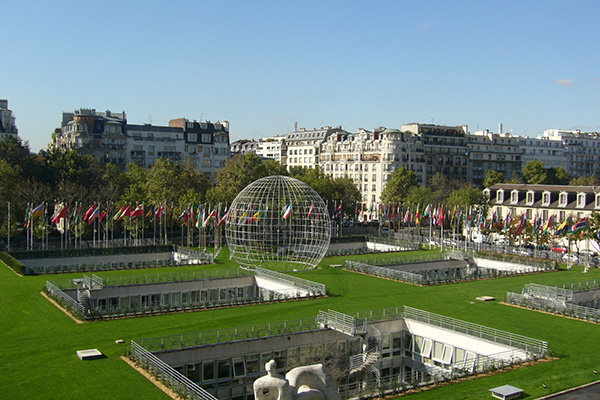UNESCO and Japan

UNESCO stands for United Nations Educational, Scientific and Cultural Organization. It seeks to build peace through international cooperation in Education, Sciences and Culture. Japan joined UNESCO in 1951. In fact, UNESCO was the first UN organization that Japan joined after World War II. There has been renewed awareness within the international community of the role that factors such as culture and education can play in bringing about stability and prosperity to the entire international community. On the basis of this awareness, the Government of Japan actively supports UNESCO.
The Government of Japan has created several funds-in-trust in order to financially support specific projects by UNESCO in which it takes special interest. Some of these funds are financed by the Japanese Ministry of Education, Culture, Sports, Science and Technology (MEXT) and others by the Japanese Ministry of Foreign Affairs (MOFA).
In addition to financial support, Japan has historically been involved in a myriad of activities and initiatives in the educational, scientific and cultural sectors of UNESCO.
Education
In the field of education, Japan has been providing support for quality education in the Asia-Pacific region for about 50 years through the funds-in-trust to UNESCO. Japan has also been promoting Education for Sustainable Development (ESD) with UNESCO since Japan proposed ESD at the World Summit on Sustainable Development in Johannesburg in 2002. In 2014, the final year of the UN Decade of ESD (2005-2014), Japan co-hosted the UNESCO World Conference on ESD in Nagoya and Okayama, which resulted in the establishment of the UNESCO-Japan Prize on ESD. Under the current international framework, "Education for Sustainable Development: Towards achieving the SDGs (ESD for 2030)," Japan is actively contributing to further promote ESD and held the first ESD-Net 2030 Global Meeting in Tokyo in December 2023. In addition, with more than 1,000 UNESCO Associated Schools (ASPnet Schools), Japan domestically promotes ESD, designating them ESD promotion hubs. Visit this page for more information on ESD in Japan.
Natural Sciences, Social and Human Sciences
In terms of science, Japan contributes to the promotion of sciences for sustainable development and collaborates with UNESCO Headquarters, UNESCO Jakarta and the UNESCO/IOC Sub-Commission for Western Pacific in Bangkok. In addition, Japan contributes through experts’ participation and cooperation in various projects and meetings. Dr. MICHIDA Yutaka has been elected as the Chairperson of the IOC for the 2023-2025 biennium. Visit this page for more information on Japan’s initiatives in the field of science.
Culture, Communication and Information
In terms of culture, Japan cooperates through participation in conferences and the like in order to incorporate policies for cultural diversity at the national and international levels and contributes to protecting cultural diversity in the world through preservation of cultural and/or natural heritage as well as through creativity and development. Visit this page for more information on Japan’s initiatives in the field of culture. Find out more about the Memory of the World Programme and Creative Cities/Creative Cities Network through the respective links.
Civil Movement
On a civil level, Japan is the first country to have developed a UNESCO movement. In line with UNESCO, this civil movement called for peace and international cooperation. It was kickstarted by the formation of a UNESCO Association, a volunteer organization within the private sector, in Sendai in July 1947. This was quickly followed by the birth of similar associations in Kyoto, Kobe, Osaka, and other prefectures nationwide. Each local UNESCO Association has spearheaded activities that aim to contribute to the realisation of UNESCO’s ideals in the fields of education, science, and culture. The proliferation of local UNESCO associations led to the formation of the National Federation of UNESCO Associations in Japan (NFUAJ), which primarily seeks to contribute to achieving world peace through collaborative learning and actions both domestically and internationally while building a culture of peace at the grassroots level. Japan’s civil efforts related to UNESCO eventually paved the way for the establishment of large-scale organizations of civil UNESCO associations such as the Asia-Pacific Federation of UNESCO Clubs, Centres and Associations (AFUCA) in 1974 and the World Federation of UNESCO Clubs, Centres and Associations (WFUCA) in 1981.
